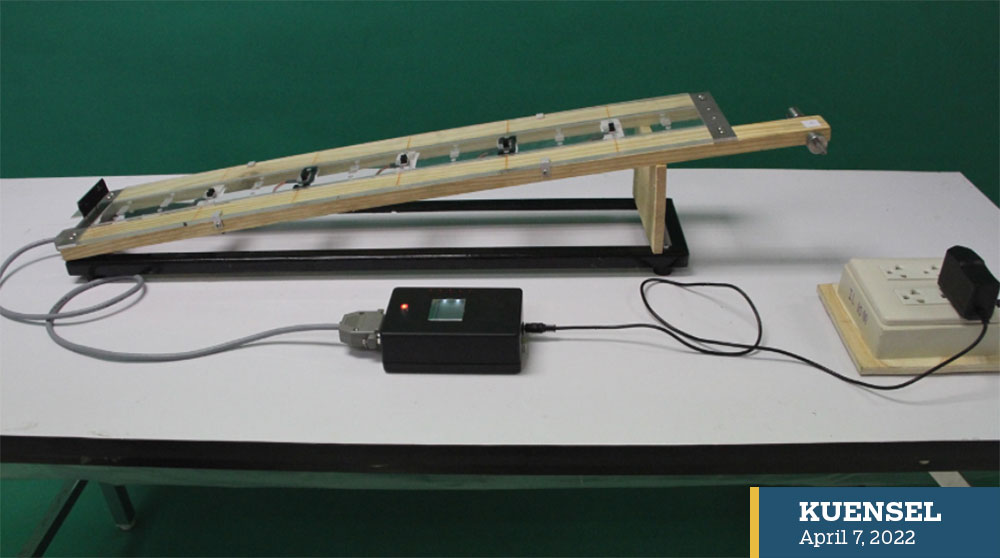Chhimi Dema
The Department of Intellectual Property of Thailand awarded Petty Patent to former Physics teacher Dumcho Wangdi’s experimental kit for demonstration of the law of energy conservation on March 3 this year.
The petty patent was awarded as the invention was innovative, original, and novel in its contribution to making students understand the law of conservation of energy.
Dumcho Wangdi is pursuing a Doctor of Philosophy (PhD) in Australia.
He said he invented the experimental kit to help students understand the concept as an alternative to the conventional methods such as theoretical examples and imaginary illustrations provided in the textbooks.
“As a science student and as a former middle school physics teacher, I saw students facing difficulties to learn about the law of energy conservation,” he said. “Students’ challenges motivated me to explore some alternate innovative learning approach.”
The model was developed as part of a thesis for his master’s degree, and the findings on its precision were presented during two international conferences in Thailand, the 9th Siam Physics Congress, and the 40th Congress of Science and Technology.
Dumcho Wangdi’s innovation was also used in Dechentsemo Central School and Bajothang Higher Secondary School in Punakha, and research articles based on its findings were published.
A research article that was published in the International Journal of Innovation in Science and Mathematics Education 2020, mentioned that students’ views and attitudes toward the guided inquiry laboratory were positive and affirmative.
“The results of this study suggest that guided inquiry laboratory as an educational pedagogy can enhance students understanding of law of mechanical energy conservation,” it stated.
The law of energy conservation states that energy can be neither created nor destroyed but it can be transformed from one form to another.
“Our students can write the definition of the law of conservation of energy prominently through the means of rote memorisation. However, they are not able to relate to real-life application or explain it based on their understanding,” Dumcho Wangdi said.
The patent was awarded to him after six years of evaluating the model of its originality, genuineness, and authenticity. The patent will protect the invention for 10 years.


